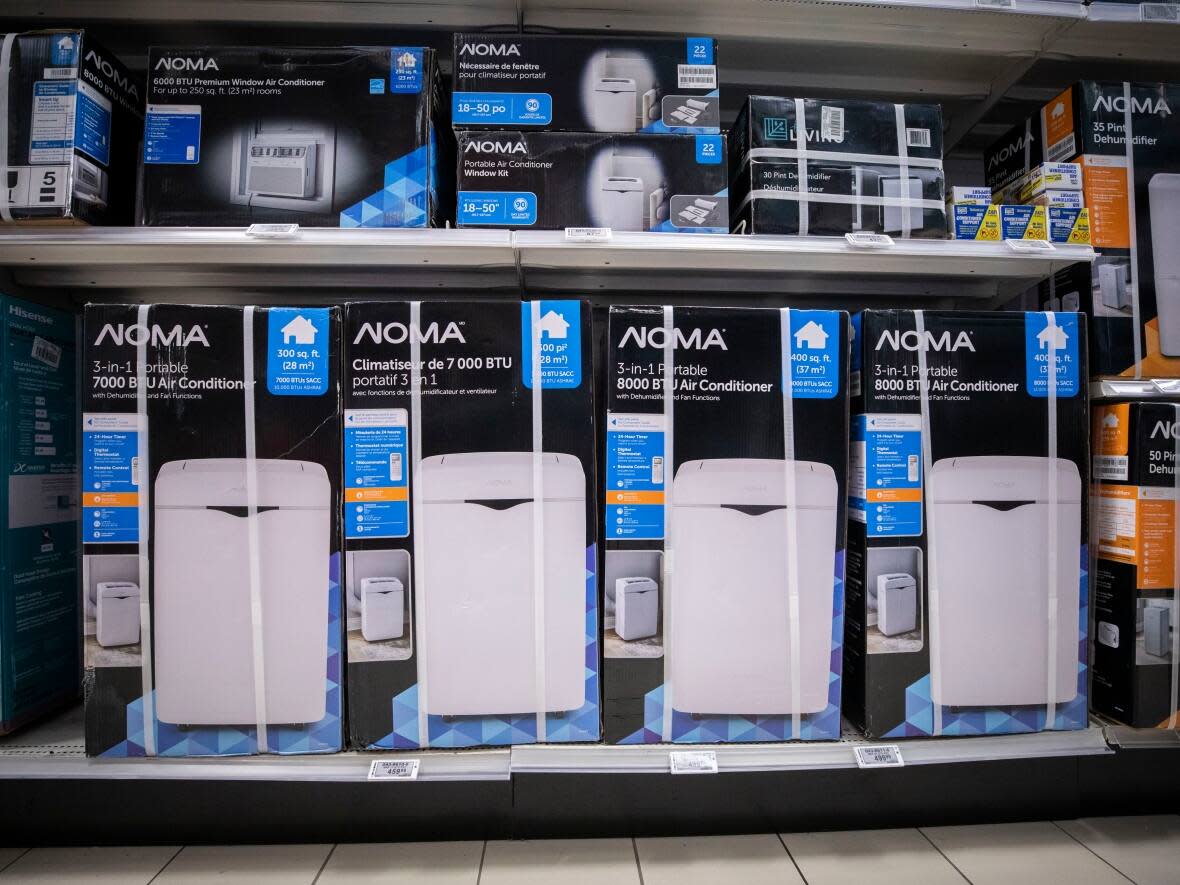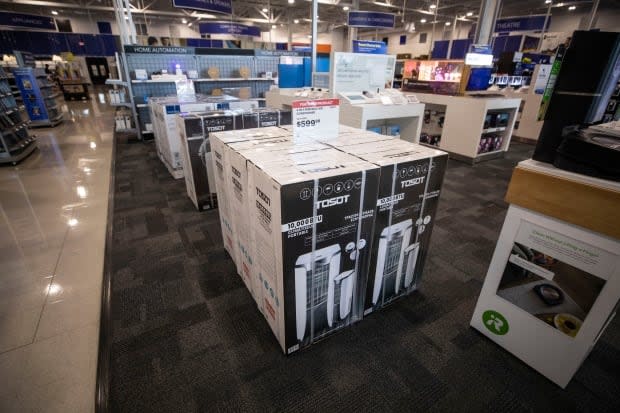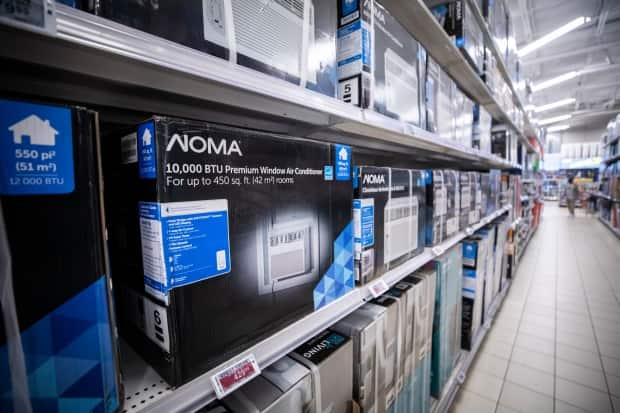Trying to chill: The pros and cons of portable and window air conditioning units

As cool temperatures and rainy conditions stretch into June, it's hard to believe nearly a year ago British Columbia experienced a record-breaking heat dome that killed hundreds of people.
With temperatures also rising yearly because of climate change, many people are buying air conditioning (AC) units for their homes.
"I've never sold so many air conditioners as I have [now]," said Ed Wilkerson, owner of Magnet Home Hardware in Vancouver.
According to a BC Hydro study released in 2020, air conditioner use has tripled since 2001 to include 34 per cent of homes in B.C.
There are permanent solutions such as installing central air conditioning in your home or adding a heat pump, a device that pushes hot air out of your house.
But if you're a renter or an apartment dweller looking for more flexible options, there are two main solutions: a portable AC unit or one for the window.
Portable units
Susie Rieder with B.C. Hydro says portable AC units — devices that can be wheeled around from room to room to help cool them down — are the most popular type of air conditioner in the province.
Because portable units can be easily moved, she says they are more convenient for the user.

But Rieder says they're typically more expensive to purchase and operate, with the average price ranging from $400 to $800. She says a portable unit running for about 12 hours a day will cost about $45 a month.
"Many people, especially in the Lower Mainland, use multiple portable units, which could actually mean higher energy costs," she said.
Wilkerson says another drawback is that portable machines take up more floor space and some new units have trays that collect water. She recommends checking them often, especially after a humid day, to ensure the water doesn't overflow and cause damage to the floor or the unit below.
Window units
Rieder says window AC units — a device that typically sits in your window frame pumping hot air out and cool air in — may not be as convenient as a portable unit, but they usually cost less.
She says buying a window unit with an Energy Star rating, which indicates that the product meets the federal guidelines for energy efficiency, should save customers some money. On average, it costs around $20 a month to run a window unit for 12 hours a day, she says.

They're also slightly cheaper to buy, ranging from $300 to $700.
Other factors to consider
Rieder says before purchasing an AC unit, B.C. Hydro recommends ensuring your home is well insulated so that cool air stays inside.
She says buyers should also consider the size of the space they're trying to cool. Units that are too big could be a waste of energy and cost you more, while units that are too small won't adequately cool the space.
B.C. Hydro has a formula on its website that can help potential buyers calculate how much power they'll need to keep a room cool.
Wilkerson recommends that apartment dwellers check in with their strata, as many of them do not allow window AC units.
He says some window units may not fit inside a window frame, so it's best to have your measurements on hand when purchasing this type of air conditioner.
And buyers may need to purchase wood planks, Plexiglass or other material to fill in gaps in the space to ensure the window unit is secure and won't fall out.


